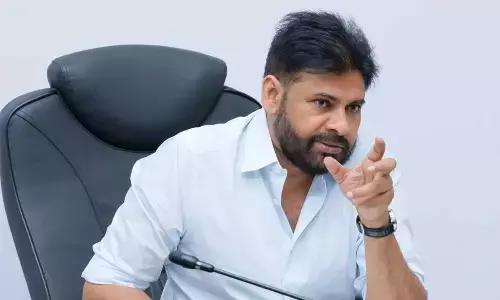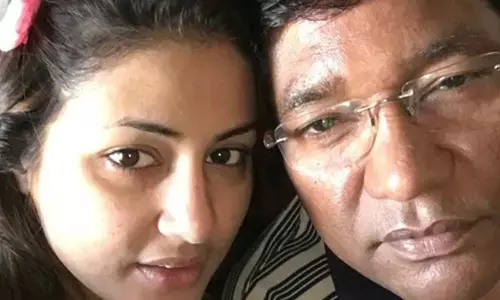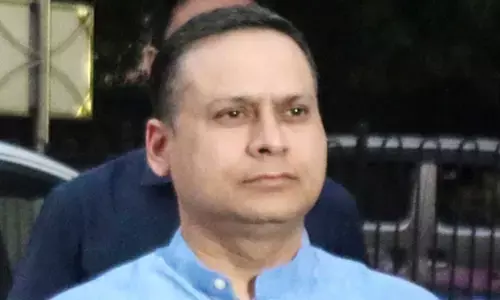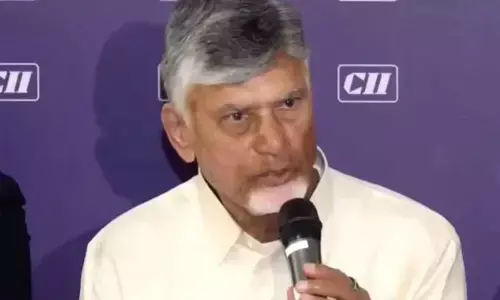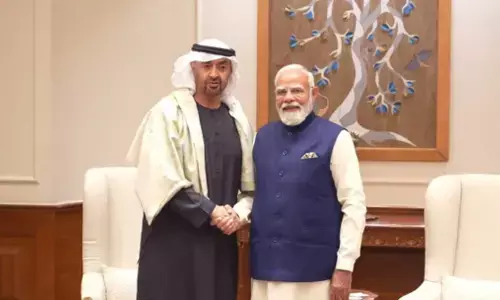Miserable conditions for RTE

Miserable Conditions For RTE, Bijli-Sadak-Pani, Chukka Ramaiah. Recently I happened to read the anguish expressed by the RTE Forum of Delhi. They wanted our idea of progress and development to be beyond the age-old ‘bijli-sadak-pani’ manifesto.
.jpg) Recently I happened to read the anguish expressed by the RTE Forum of Delhi. They wanted our idea of progress and development to be beyond the age-old ‘bijli-sadak-pani’ manifesto. They condemned the lack of serious attention and intention from political parties to implement the RTE Act, and remarked that the "manifestoes have failed to see the education scenario in toto and provide strategies to improve quality education and ensure RTE Act in the State".
Recently I happened to read the anguish expressed by the RTE Forum of Delhi. They wanted our idea of progress and development to be beyond the age-old ‘bijli-sadak-pani’ manifesto. They condemned the lack of serious attention and intention from political parties to implement the RTE Act, and remarked that the "manifestoes have failed to see the education scenario in toto and provide strategies to improve quality education and ensure RTE Act in the State". This made me ponder on the miserable condition of RTE implementation in our State too. As a nation, we have taken one of the historic steps in providing the means for equality and progress when our constitutional directive insisted on free and compulsory education and we initiated our steps in universalising free education.
But three years after the directive, if we are complacent with the paper work and if we sweep under the carpet the innumerable problems associated with this most vital directive’s successful implementation and if we negate the obvious lacunae, we would be doing a great injustice to ourselves.
Right now, we are unable to use our human potential to its full, the sharp social and economic disparities have handicapped or restricted our human resources and it is our ambition to elevate and include the hitherto marginalised 50 per cent. In this regard, unfortunately, our challenges and issues linked with education and progress are multidimensional.
Poverty is the basic block for inequality and if we wish to avail ourselves of the benefits of universal education to eradicate inequality, we must study the bill in-depth; the links between poverty, illiteracy and lack of social opportunities; the levels of educational attainment of the poor so far and work out means for providing basic human rights to all, create competence to match their right to employment, have nutritious food and comfortable shelter; educate their children as per their dreams and assert their right to make choices in their lives.
Some may strike away my fears as baseless as they may consider the unexpected, unprecedented expansion and the significant enrolment in schools as a sign of our victory. To all such optimists, I say that while accepting this first step to be remarkable, we all should focus on many more issues which are linked to this RTE. Just as dusting and cleaning the house are the first steps to get ready for a festival but not the festival itself, enrolling the students in large numbers is the very first step and nothing more…it doesn’t call for celebration but greater focus to provide many things which make our attempt a success.
For example, we have to be clear in our vision and implementation of what our educational standards are and how we can improve them from their present state to the expected one we need to conceptualiae how our education can become meaningful and a strong tool in realising our larger goals; we must constantly endeavour to adhere to the fundamental objectives of primary education and achieve the all-round development of the learners.
All this is not possible unless there is a meaningful coordination between people at the helm and those in the field, a collective effort of our educational planners, administrators and teachers to understand the educational characteristics of primary school children in the context of their development. In retrospect we realise that our three years of effort has failed in its primary objectives.
Our students have not been able to develop a general reading habit, ability to comprehend, nor write anything on their own by framing meaningful sentences. Just like the reading and writing skills, even their arithmetic skills are very low for what they have been learning is to tax their brains by rote learning! In our time-bound action plan we must now work with clearer targets right from the grass-roots or our primary schooling.
We all know that primary school children are those studying in the lower primary classes of 1, 2, 3 and the upper primary classes of 4 and 5. Apart from this, how much of each of the child’s physical, cognitive, emotional, social, moral spheres do we know? Do we not know that all these have educational implications and we can take our steps correctly only when we are furnished with all this knowledge? The hereditary as well as the environmental problems too have to be considered.
As the interaction between the teacher and the taught is the key to development, how can a teacher’s interaction be meaningful without the understanding of these multiple issues and influences? If we wish to reap better fruits from our RTE, I believe we need to reorient ourselves in some fields, strengthen ourselves in some and revamp some areas altogether.
With Humanism as the overarching philosophy of education, our primary education must develop a child-centered approach wherein the child’s needs, interests, strengths, play activities etc., must assume tremendous importance. Unless this is incorporated in our education bill, its access to our classrooms will be impossible.
The next step would be for the teachers to highlight on these factors. Without this reorientation, what we are providing to the millions, whom we have enrolled, cannot be counted as education, and while providing the mid-day meals is a very good step, it can never be the only reason for a child’s presence in school and if it is so, there is no greater shame than this. We need to introspect on our pedagogical strategies in child education regarding the curricular plans, content, machinery used to reach the class room etc.
The books designed must be such that the teachers understand their purpose and get motivated to implement them with true spirit in the child’s learning process. Though we acknowledge that research in the related fields gives us the needed feedback to correct our approach, we have not given any importance to it so far.
Have we done any indigenous research on social stratification and skill development at our national level to see if the skills of the students from below poverty line are in any way different from the middle income group kids in the same area? So too, how much research and reference material is indigenous among all the scores of books used? Our country has a typical pattern unique to its setup, so the rural urban divide, the class and caste division and the strong religious fervor instilled in children even before they step into primary education make it impending on us to do our survey and research to guide us properly.
There is yet another aspect which needs to be addressed. Because of malnutrition and several hereditary disorders, the number of kids with special needs is increasing. If we do not care for their physical, mental and emotional needs, if we do not provide specially trained teachers to handle these kids efficiently, we would be multiplying the problems as we go along.
Right now they remain the most neglected children as we do not have adequate schools with facilities to accommodate them. Provision to make special arrangements for this category has to be mandatory and a thorough survey of the rural as well as urban locales to identify such needy children and encourage timely support through education of both the parents and the kids must be encouraged.
Probably associations like Action Group on RTE, Andhra Pradesh, a coalition of various civil society organisations, Supporting Agencies (such as UNICEF, Save the Children, OXFAM, Plan India etc.) and networks, drawn together from the three regions of Andhra Pradesh for contributing their efforts for bringing significant success to the Right to Education Act, can work in this direction.
Only when we address all our poverty-related and social problems while trying to provide quality education, only when we can provide this in our government schools, when we have sufficient number of schools with committed teachers, modified student centered curriculum for skill enhancement and novel assessment mechanisms which do not compel the teachers to manipulate records as every child left behind may be a negative mark on their efficiency, can we hope to have the true purpose of universal free education served.
Next Story









